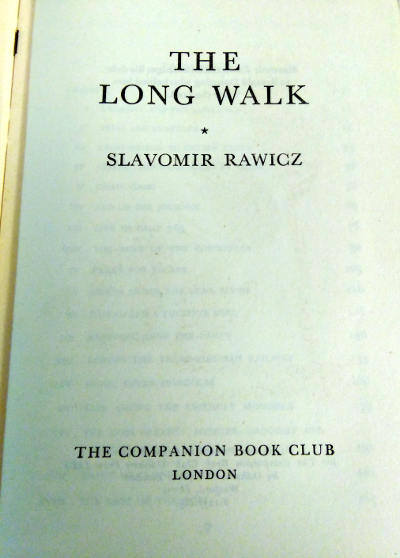

The young couple had 48 hours together before Slav was mobilised as Germany invaded Poland. In 1937, he joined the Polish reserve army, qualifying at the cav alry cadet officers' school the following year. As an adventurous boy, he roamed the glades and rivers of the Pripet marshes, fishing, sailing, making shelters and trapping his own food, all of which helped in his later, testing years.įollowing private educa-tion, from 1932 to 1938 he studied architecture and surveying in Warsaw. His mother, an accomplished musician, was Russian, and he grew up to speak the language fluently. Slav, the son of a landowner-cum-artist, was born near Pinsk, in western Poland (now Belarus).

After a period in hospital, the four dispersed, never to meet again. He never recovered his full health, but his humane will never betrayed it. Three of the seven died on the way.īy the end of his ordeal, Slav weighed 5 stone. Sheer determination had overcome bitter cold, suffocating heat, thirst, starvation and injury. They then walked 4,000 miles south, living off the land, through the Gobi desert and over the Himalayas, until they reached India and were rescued by a Gurkha patrol. In April 1941, with the aid of the camp commandant's wife, Slav and six others escaped in a blizzard.

Dispatched to Siberia, he and thousands of others were transported in open cattle trucks, in sub-zero temperatures, to the end of the line at Irkutsk, where, chained together, they were force-marched hundreds of miles to Camp 303 - which the survivors had to build from scratch. Slav's account started in the notorious Lubyanka prison in Moscow, as he was sentenced to 25 years' hard labour for "spying", after the 12 months of interrogation that had followed his arrest on November 19 1939.


 0 kommentar(er)
0 kommentar(er)
